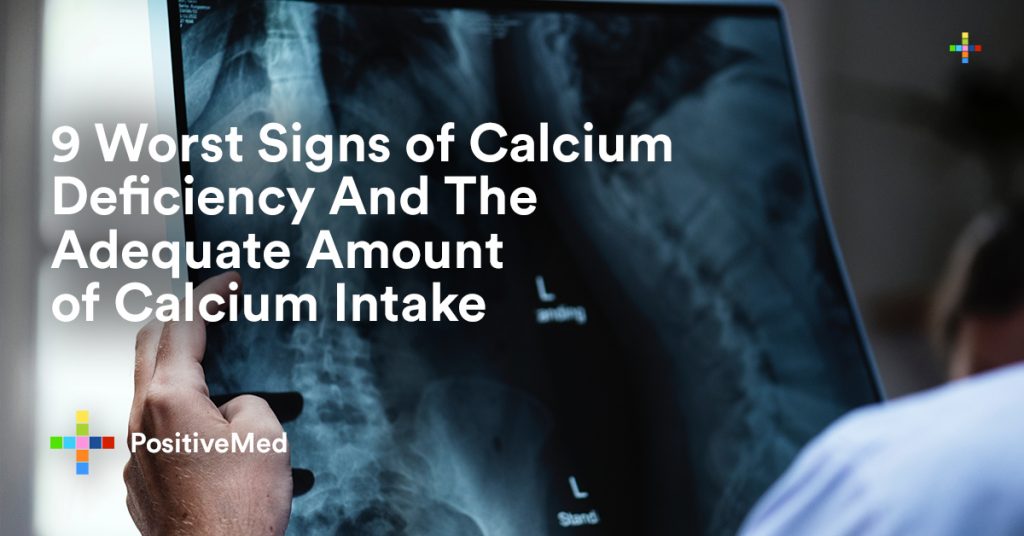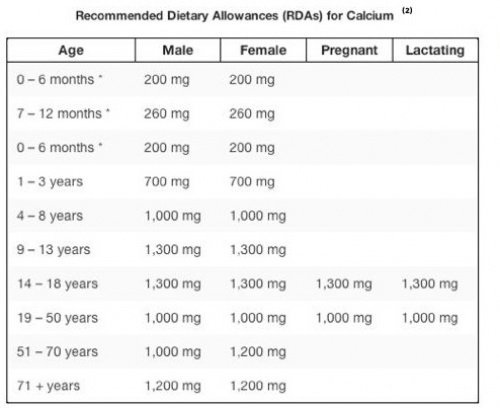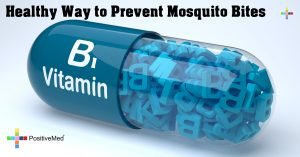Calcium is a naturally occurring mineral that has many important functions within the body. Calcium’s main function is to build cells, which means that blood, nerves, and bones all rely on calcium to work properly. Calcium is normally the most common mineral in the body, so a calcium deficiency can be extremely problematic.
What Is a Calcium Deficiency?
Since calcium creates new cells, it is essential for the health of bones, teeth, muscles, functioning nerves, hormones, and even the ability to make blood clots. If a person is not getting the recommended daily dosage of calcium, 1,000 to 1,300 milligrams a day, they are calcium deficient. Postmenopausal women, vegans, and lactose intolerant people are especially likely to develop a calcium deficiency. When a person is calcium deficient, the body may get its calcium from the bones and teeth, where calcium is typically stored, and this can cause dangerously weak bones to develop. As calcium deficiency worsens, a variety of health problems may occur.

What Are the Signs of a Calcium Deficiency?
RELATED ARTICLE: 6 Foods That Fight Vitamin C Deficiency Way Better Than Oranges
There are nine main signs of calcium deficiency:
• Lowered bone density —This is one of the most dangerous symptoms of calcium deficiency since it can lead to fractures. Bone density is lowered because the body is using calcium for other vital operations instead
• Muscle cramps — Muscle cramps are an early warning sign of calcium deficiency, and they typically occur in the calf and thigh muscles. They happen during a deficiency because calcium usually helps to regulate muscle contractions.
• Bruising easily — Calcium normally helps blood to clot whenever a blood vessel is broken. During a calcium deficiency, bruises are more pronounced after minor accidents because small capillaries under the skin bleed more when bumped.
• Unpleasant menstruation — Severe cramps before and during menstruation can be due to a lack of calcium. Without calcium, blood cannot clot, causing heavier bleeding during the menstrual cycle
• Memory loss — This is one of the most severe signs of calcium deficiency. Calcium normally makes nerve cells, so without strong nerves, the brain can have difficulty remembering vital information.
• A toothache — Just like bones, tooth density is lowered when the body needs to use calcium in other places. This leads to weaker teeth that are more likely to be weakened or decay.
• Brittle nails — Calcium deposits are typically what makes nails strong and unbreakable. Since strong nails are not a priority of survival, nails will often become brittle as soon as a calcium deficiency occurs.
• Numbness or tingling— This symptom is due to low levels of calcium in the blood and an improperly functioning nervous system when a severe calcium deficiency is occurring.
• Exhaustion — A general feeling of fatigue and lethargy may set in once calcium deficiency is pronounced. Without calcium, the brain has trouble functioning, while the muscles have to work harder to move the body around.
How Can You Get Enough Calcium?

Fortunately, a calcium deficiency is relatively easy to fix, since all you have to do is make sure that you are consuming an adequate amount of calcium. People between the ages of 9 to 18 need 1,300 milligrams of calcium each day, since they are still growing, while people who are 19 to 50 years old only need 1,000. Pregnant or breastfeeding women may need a slightly higher amount of calcium around 1,200 milligrams. After the age of 50, women should get at least 1,200 milligrams a day, and men need 1,00 milligrams. Calcium can be taken as a supplement, or a calcium deficient person may be able to get enough calcium by changing their diet. It is important to also get enough vitamin D since it helps the body to absorb calcium. Foods high in calcium include dark leafy greens, cheese, milk, yogurt, soy products, okra, broccoli, green beans, fish, and almonds. Generally, the body absorbs calcium the best when it is split into 500-milligram doses throughout the day, which are taken with food.






